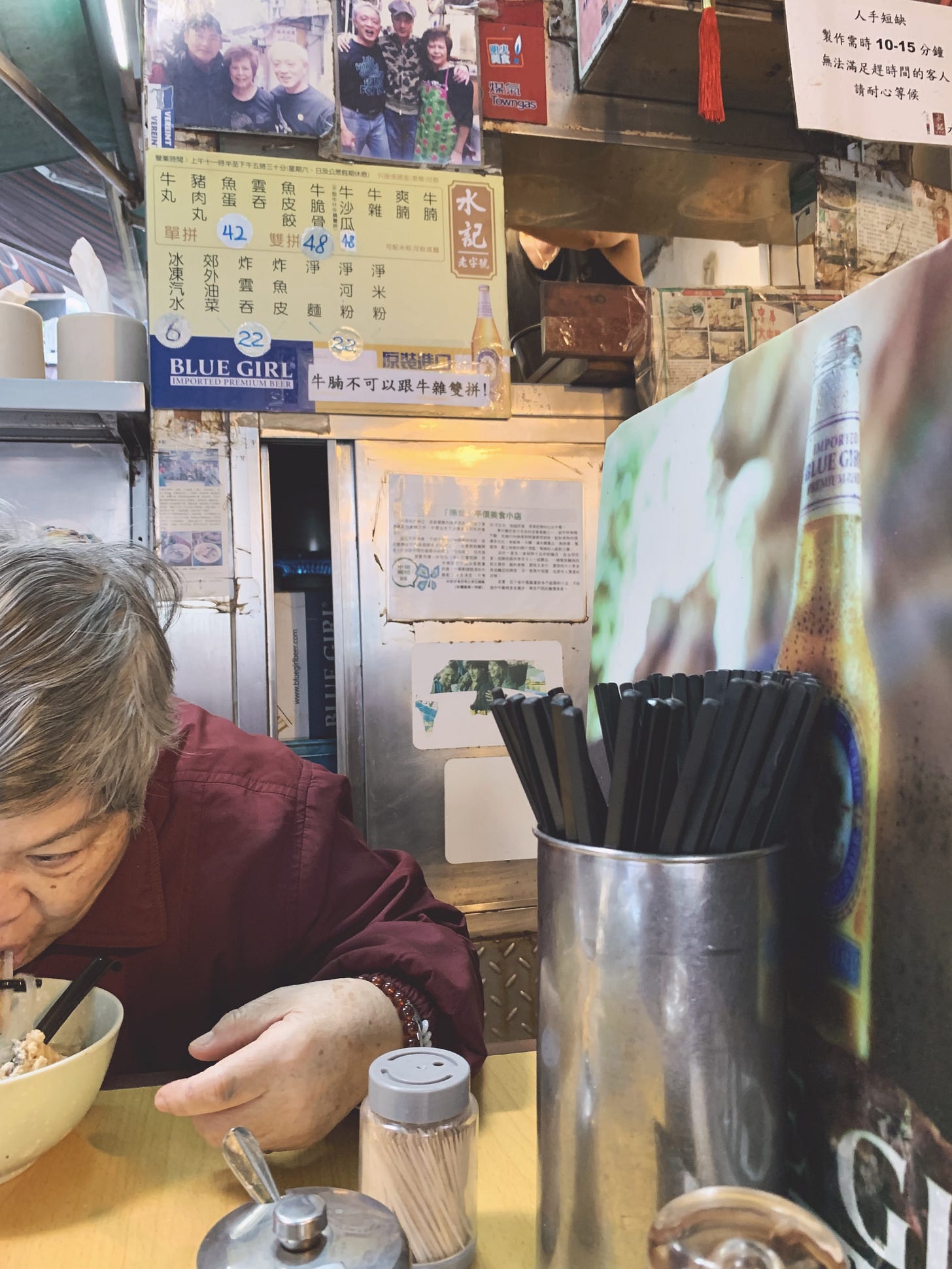Offal noodles on a descending slope
At least half a century old, these street-side stalls scattered along alleyways in the central business district in Hong Kong used to feed the poorest in the city.
Where skyscrapers shoot through the sky and offices bustle with stock trade and financial transactions of many kinds, Central was once the most impoverished neighbourhood, where children would navigate familiar paths unlit by streetlights and scavenge for leftover dinners in the bins. My father was one of them.
Shui Kee is known for beef offal noodles at forty dollars a pop. It’s a simple meal that belies the painstaking labour that goes into cleaning the various organs of a cow, and a tradition of using all parts of an animal before it became fashionable in mainstream gastronomy.
The eatery takes no reservation, and diners find their own slot amongst the few foldable tables propped up on a descending slope. On a quiet afternoon, one can hear the sound of the gas stove made to work, as people in suits or heels or construction helmets walk past, engaged in their own conversation in person or through an ear piece, in various different languages. Depending on your luck, you may even be privy to the gossips of the family that runs this stall — the mother’s worry about her son’s lack of sales technique is eager to find release.

